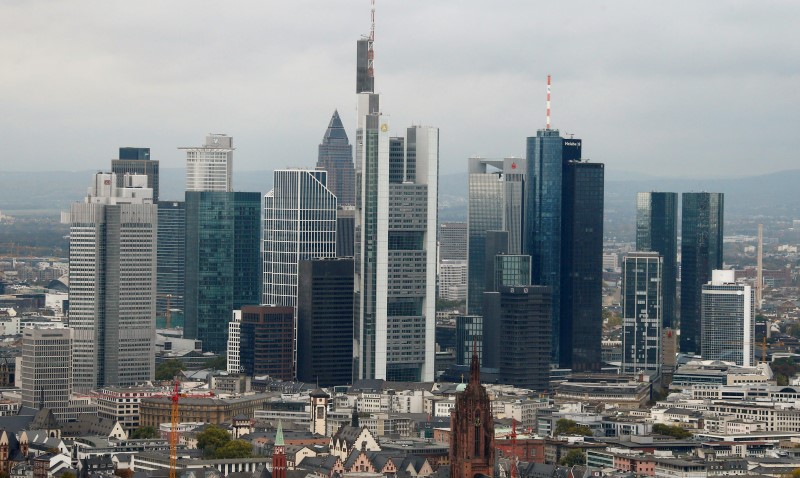Investing.com - German private sector activity grew at the slowest pace in seven months in February, dampening optimism over the health of the euro zone’s largest economy, preliminary data showed on Monday.
Markit said that its seasonally adjusted Flash Germany Composite Output Index, which measures the combined output of both the manufacturing and service sectors declined from 54.5 in January to 53.8 in February, a seven-month low and below forecasts for a reading of 54.1.
The preliminary German manufacturing purchasing managers’ index tumbled to a seasonally adjusted 50.2 this month from a final reading of 52.3 in January, the lowest in 15 months and missing estimates for 52.0.
Meanwhile, the preliminary services purchasing managers’ index inched up to a seasonally adjusted 55.1 in February from 55.0 in the prior month. Analysts had expected the index to dip to 54.7.
A reading above 50.0 on the index indicates industry expansion, below indicates contraction.
Service providers saw the fastest rise in new business for three months, but manufacturing new orders rose to the least extent since July 2015. Some manufacturers highlighted difficulties in securing orders from foreign clients, and new export business increased only marginally over the month.
Commenting on the report, Oliver Kolodseike, Economist at Markit said, “The German economy appears to be in the midst of a slowdown, according to February’s flash PMI results.”
EUR/USD fell to 1.1086 from around 1.1087 ahead of the release of the data, while EUR/GBP was at 0.7808 from 0.7809 earlier.
Meanwhile, European stock markets were higher after the open. Germany's DAX added 1.6%, the EURO STOXX 50 rose 1.8%, France’s CAC 40 tacked on 1.45%, while London’s FTSE 100 inched up 1.2%.
